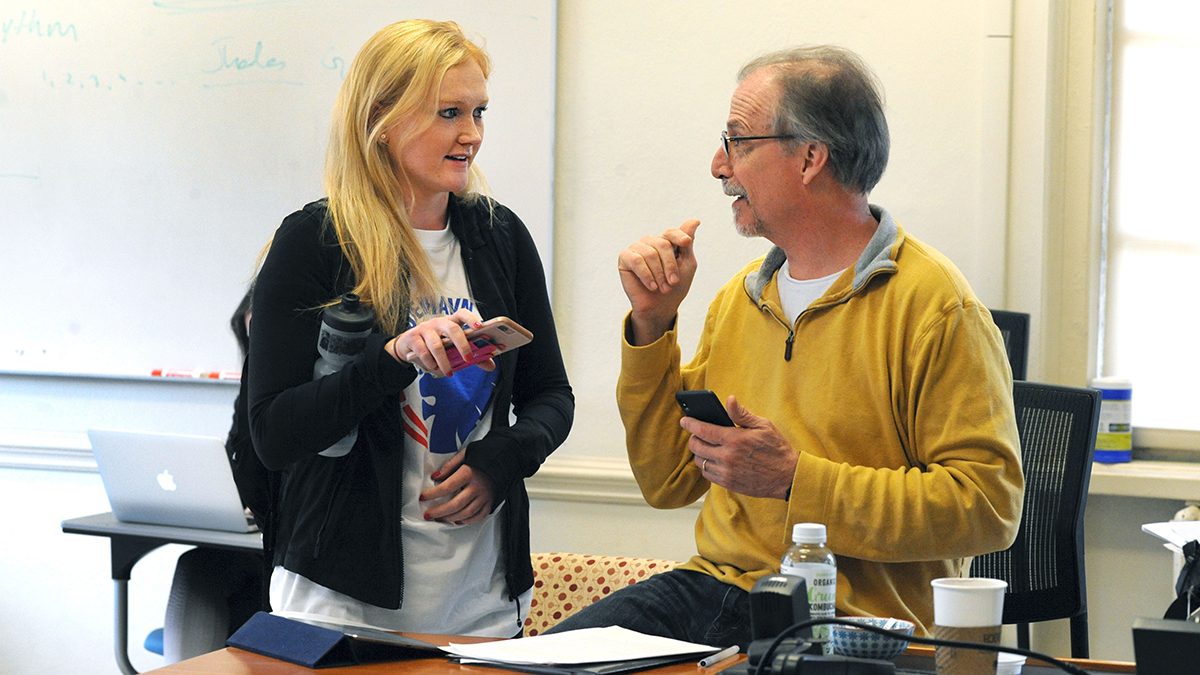English and comparative literature department offers seven new concentrations
The department of English and comparative literature will offer seven new major concentrations this fall to help students pair their English major with natural sciences, social sciences and more.

Carter Hurley, Clara Davison and Samantha Kichman are all double-majoring in English and another field — and they are excited about the new concentrations that will be offered in fall 2018.
Hurley said she has always resisted being put in “one box or another.” She’s majoring in English and chemistry because “I want to know so much about the world, and both majors push you toward analytical skills.”
Hurley is also interested in law and has enjoyed the advanced legal writing class she’s taking this semester with Jennifer Larson, English teaching associate professor and assistant director of undergraduate studies.
Seven new concentrations offered in fall 2018 will allow English majors the option to choose a concentration that matches their interests. Many of the concentrations are interdisciplinary. They include:
- Comparative and world literatures (also a minor)
- Creative writing (also a minor)
- British and American literature (also a minor)
- Film studies (also a minor)
- Science, medicine and literature (also a minor)
- Social justice and literature
- Writing, editing and digital publishing (also a minor)
“We encourage students to follow their bliss. One of the main goals for this reorganization is to show them how versatile the English major can be, that it can prepare you for so many different career trajectories,” Larson said. “We’ve created a road map of customization for them, if they want to take that route.”
Recent graduate Davison majored in English and political science and took classes in medicine, literature and culture. She received a 2017 Summer Undergraduate Research Fellowship to pursue a project analyzing the role of stories in helping women with postpartum depression address the stigmatization they sometimes feel.
“At the end of the day, stories matter. Stories can be used to help us understand illness in a way that’s not seen in medical data,” Davison said.
As an English and peace, war and defense major, Kichman has always been interested in issues of social justice, history and international relations. She spent a year studying abroad at Oxford University working on her thesis on war literature. She eventually hopes to go to graduate school in international relations, and she said her studies have allowed her to explore both a humanities and a social sciences perspective.
She applauds the new English concentration in social justice and literature.
“My dad was a Green Beret, so I have always tried to have a [broader] perspective on the world and human rights,” she said. “The power of language and focusing on things through that lens can be a good way to approach big issues.”
Mary Floyd-Wilson, Bowman and Gordon Gray Distinguished Term Professor and chair of the English and comparative literature department, said English majors learn how to translate powerful ideas across time, disciplines and cultures, and then make connections to the “here and now.”
“Knowing how to analyze the written word and use language persuasively is what enables English majors to thrive in diverse fields, including medicine, law, project management and nonprofit development,” she said.




